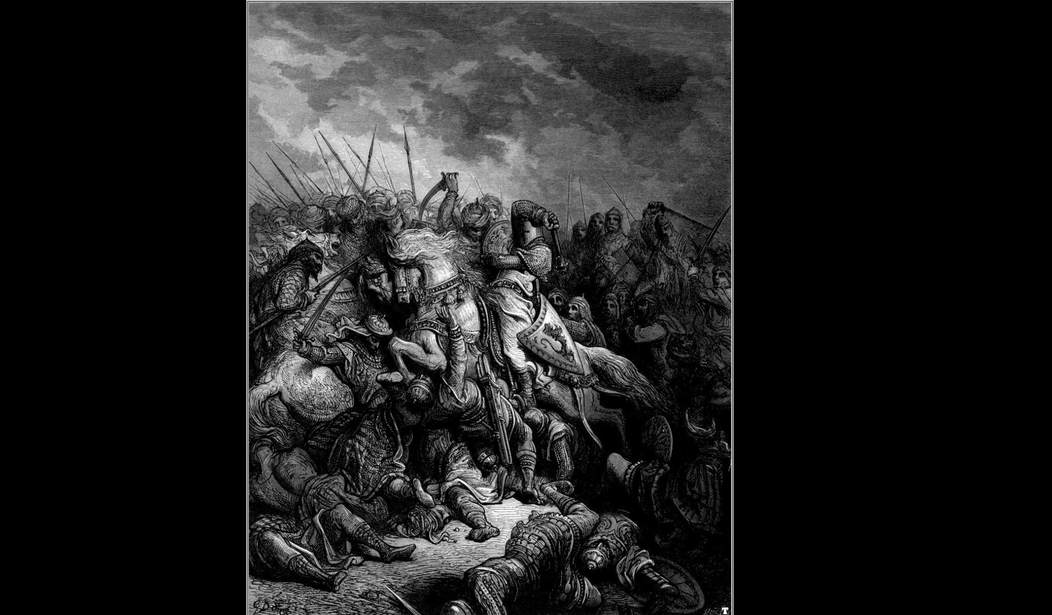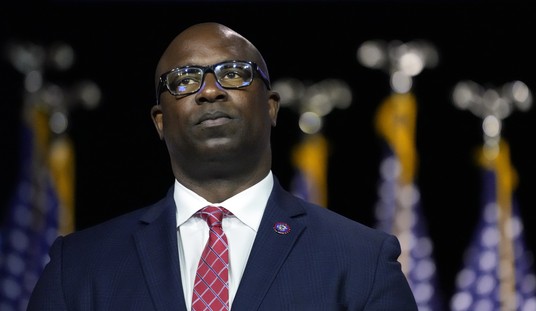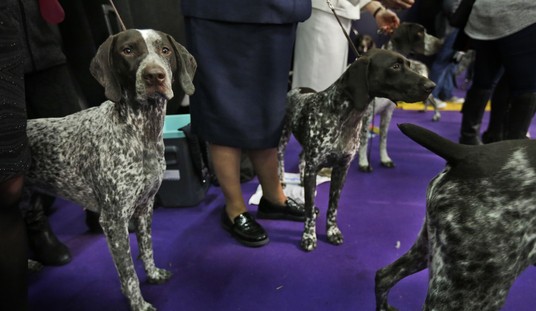Today in history witnessed an epic battle between Christians and Muslims. The sheer ferocity and valor displayed at the battle of Arsuf makes most otherwise “breathtaking” battle scenes emanating from Hollywood seem like child’s play.
Context: In late August 1191, Richard the Lionhearted, at the head of a large force of Crusaders, set out from Acre to Jaffa. Along with the fierce Syrian sun, the Christians were harried by a nonstop deluge of arrows from the hordes of Saladin, who a few years earlier had all but annihilated the Crusaders at the Horns of Hattin.
Despite the casualties from arrows, sunstroke, snake bites, starvation, and disease, the Christian warriors remained undaunted and pressed on. Saladin’s own biographer, Baha’ al-Din, expressed dismay:
I saw various individuals amongst the Franks with ten arrows fixed in their backs, pressing on in this fashion quite unconcerned…. Consider the endurance of these people, bearing exhausting tasks without any pay or material gain.
Finally, on Sept. 6, as the Crusaders emerged from a dense wood, there on the vast plains of Arsuf, they saw “all the forces” of Islam marshaled before them, “from Damascus and Persia, from the Mediterranean Sea to the East,” writes a chronicler. There was not a single warlike Muslim people “whom Saladin had not summoned to aid him in crushing the Christian people,” for he “hoped to wipe the Christians completely off the face of the earth.”
The battle commenced on the morning of Sept. 7, 1191. A wild din erupted from the Muslim camp. Drums, horns, and cymbals banged and brayed, to reverberant cries of “Allahu Akbar” and other “horrible yells.” As the Crusaders knelt in prayer and went into battle formation, the “land all around resounded with the echo of their [Muslims’] harsh cries and roaring noise.” Suddenly, in the midst of this “terrifying racket,” thousands of Turks “rushed down on our people” on horses “driven like lightning.” The dust storm caused by this stampede “filled the sky like a dark cloud.” Behind the galloping Turks “ran a devilish race, very black in color.”
In this manner, the Muslims “fell on our army from all sides… There was not a space for two miles around, not even a fistful, which was not covered with the hostile Turkish race… As they kept up their persistent assaults they inflicted very grave losses on our people.”
Unlike the better-rested and provisioned Muslims, the already exhausted Crusaders fought back as best they could. Unhorsed knights were seen “walking on foot” and “returning blow for blow as far as means and strength allowed,” even as the Turks galloped about and continued to rain down darts on them.
For long, Richard commanded his men not to break rank but to stay in a defensive posture. Only when the entire Muslim army had gotten close enough, and their horses had tired, would he give the signal for a counteroffensive.
Inevitably, however, “two knights who could not bear to wait” any longer “burst out of the line,” whereupon “everything was thrown into confusion.” They charged at and began slaughtering their enemies. “The rest of the Christians heard these two calling with loud voices for St George’s aid as they charged boldly on the Turks,” and so immediately followed suit — “charging as one into the relentlessly attacking enemy.”
On seeing this, Richard signaled for the general assault and sped to where the fighting was thickest. He broke through his own men and crashed with thunderous violence into the enemy. “Stunned by the strength of the blows he and his force inflicted on them,” the Muslims “fell back to the right and the left.” Many were butchered on the spot, while a “great number were but headless corpses trodden underfoot by friend and foe regardless.” Driven into a battle frenzy, and in the words of the chronicler:
King Richard pursued the Turks with singular ferocity, fell upon them and scattered them across the ground. No one escaped when his sword made contact with them; wherever he went his brandished sword cleared a wide path on all sides. Continuing his advance with untiring sword strokes, he cut down that unspeakable race as if he was reaping the harvest with a sickle, so that the corpses of Turks he had killed covered the ground everywhere for the space of half a mile. The rest panicked at the sight of the dying and gave him a wider berth…. Constantly slaying and hammering away with their swords, the Christians wore down the terrified Turks, but for a long time the battle was in the balance. Each struck each other, each struggled to overcome; one drew back stained with blood, the other fell slain. How many banners and multiform flags, pennons and innumerable standards you would have seen fall to the ground!
In the end, the Christians prevailed, and the “rout of the enemy was so complete that for two miles there was nothing to see except for people running away, although they had previously been so persistent, swollen with pride and very fierce.” Arabic sources confirm the magnitude of this defeat.
Saladin’s lofty and invincible stature collapsed overnight. He, however, tried to blame his men. As the Crusaders under Richard continued making progress by taking Jaffa and consolidating their hold on the coast, Saladin berated his crestfallen captains:
The Christians travel through the land of Syria just as they like without meeting any opposition or resistance. Where are my soldiers’ great boasts and brilliant exploits now?… How the people of today have degenerated from our noble ancestors who gained so many brilliant and justly memorable victories against the Christians, victories which are retold to us daily and whose memory will endure forever!
One of Saladin’s emirs dared offer a reply: “Most sacred sultan, saving your majesty’s grace, you have blamed us unjustly, for we attacked the Franks with all our effort [to no avail].” He continued by lamenting Western armor, which “is not like ours” but rather “incalculable, impenetrable.”
But that was not all:
[T]here is something especially amazing about one of them. He threw our people into disorder and destroyed them. We have never seen his like nor known anyone similar. He was always at the head of the others; in every engagement he was first and foremost… It is he who mutilates our people. No one can stand against him, and when he seizes anyone, no one can rescue them from his hands. They call him in their language Melech [King] Richard.
It took Saladin all his powers of self-control not to pull his beard and howl in rage.
Note: This article was excerpted from Raymond Ibrahim’s recent book, “Defenders of the West: The Christian Heroes Who Stood Against Islam,” which features a chapter on Richard. All quotes are sourced therein.









Join the conversation as a VIP Member